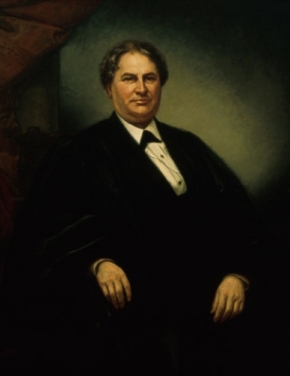You are here
Circuit Court Opinions:
Associate Justice Samuel Freeman Miller, United States v. McCarty (1865)

United States v. McCarty, 26 F. Cas. 1049 (C.C.D. Minn. 1865) (No. 15,658) [Ninth Circuit]
McCarty was a prosecution for evading the U.S. Army draft during the Civil War by procuring a fraudulent exemption. An 1864 law provided that the punishment for such fraud was to be “imprisonment for the period for which the party was drafted.” According to the 1863 statute establishing the draft, the maximum term of enlistment was three years. To imprison the defendant for three years would clearly have exceeded the time he would have served in the army, as the war had already ended. Justice Miller reasoned, however, that he could not take judicial notice of the fact that the war was over, “because an offender might be tried and convicted within a few months after the law was passed, and before the time for which the Rebellion might continue could possibly be predicted.” In other words, it would be unfair to use the war’s end to calculate McCarty’s term of imprisonment when the same could not have been done for other defendants who were convicted earlier. Miller was thus left in the position of being unable to impose a sentence that would clearly exceed the statutory limit, but also unable to calculate a shorter term. “[W]e are driven to the conclusion that there is no ascertainable period of punishment presented by the law,” he concluded. “For this reason the indictment must be quashed.”
